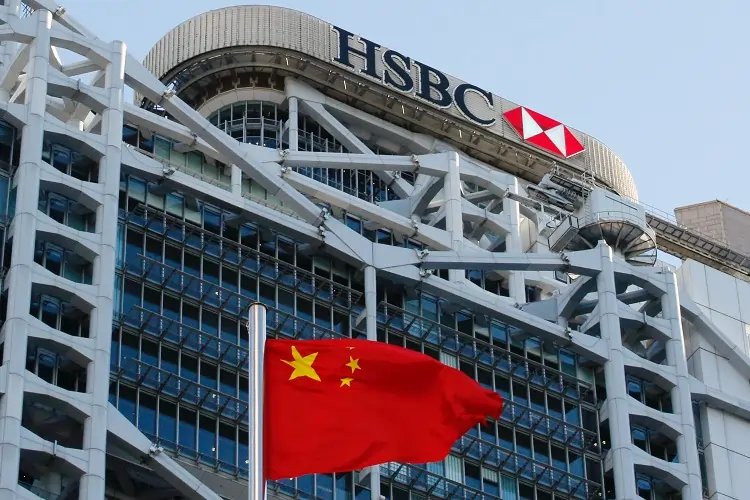Exclusive – HSBC pulling back from China credit card business after struggling to expand, sources say


By Selena Li and Engen Tham
(Reuters) – HSBC is pulling back from its credit card business in China eight years after its launch, as the lender struggled to expand and make the enterprise profitable in the world’s second-largest economy, sources with knowledge of the matter said.
The Asia-focused bank has stopped issuing new cards and is working towards winding down the service offered to a large part of China onshore customers, three sources with direct knowledge of the matter said.
Two of the them said the planned closure comes after failed attempts to sell the business.
The bank, which is still finalising the plans, may keep servicing credit cards for a small segment of “high-end” clients, according to one of the sources and a separate source with knowledge of the matter.
The bank’s “stand alone” credit card clients, those who do not use HSBC banking services in China, will not be able to have cards renewed on expiry, one of them said, adding such clients account for a large portion of the business in the country.
The decision to pull back, which has not been reported previously, underscores the challenges the bank faces in growing its footprint in China as part of its vow to shift to Asia and deepen its presence in major regional economies.
The sources declined to be named as they were not authorised to speak to media.
As part of our Premier and Global Private Banking services in mainland China, we continue to offer credit card services focused on international travel and lifestyle features,” a company spokesperson told Reuters, without elaborating. The move marks a reversal to the bank’s ambition to rapidly grow the China credit card business after launching it in late 2016 as part of its Asia pivot and expansion of its retail banking and wealth management services in China. London-headquartered HSBC, which makes the bulk of its revenue in Asia, had about one million users of its credit cards in China by September 2019, data from company releases show.
Within 18 months of the service launch, HSBC saw the business touch $500 million in outstanding balance, before growth stalled and transactions plunged due to China’s stringent COVID-induced lockdowns, one of the sources said.
Since then, Chinese consumers have tightened spending in a slowing economy, shrinking the credit card market further. Total card issuance grew in six consecutive years to reach a peak of 800 million in 2021, and had dropped to 767 million by 2023, data from Insight & Info Consulting shows.
HSBC also grappled with stiff competition and regulatory restrictions in the credit card business in China it never faced in other markets, sources said, such as rules around interest rate pricing and how banks deal with defaults. Those, combined with high client acquisition cost and fraud, undermined the business prospects, they added.
Apart from Chinese banking peers, foreign banks like HSBC also face challengers from Chinese digital platforms that have rapidly expanded to offer consumer loan services at sharply lower costs.
Only a handful of foreign banks offer credit card services in China, including Standard Chartered and Bank of East Asia.
HSBC is also reviewing expenses and operational controls at its China digital wealth business Pinnacle, in a move that could result in layoffs, Reuters reported last month.
The Greater China region, which includes Hong Kong and Taiwan, is the group’s biggest income generator but China is the only market globally where HSBC’s wealth and personal banking business is not profitable yet.
In the first half of 2024, the unit reported $46 million in loss compared to $90 million in the year-ago period.
(Reporting by Selena Li in Hong Kong and Engen Tham in Shanghai; Editing by Sumeet Chatterjee and Stephen Coates)
A credit card is a payment card that allows the cardholder to borrow funds from a pre-approved limit to make purchases or withdraw cash.
Digital banking refers to the use of digital platforms to conduct banking services, allowing customers to manage their accounts online or through mobile applications.
Business banking services are financial services tailored for businesses, including loans, credit, and deposit accounts designed to meet the needs of companies.
Customer acquisition cost is the total expense incurred to acquire a new customer, including marketing and advertising costs.
Explore more articles in the Banking category











